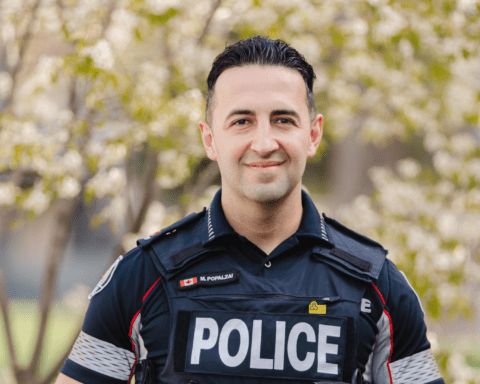My sister worries about my vacation plans, a 10-day tour of Vietnam in the midst of anti-Chinese riots.
To be clear, I booked it weeks ago, before four Chinese workers there were killed and more than a hundred injured. Last week, Beijing sent five ships to evacuate thousands of its nationals.
“Can you cancel your trip?” my sister asked.
I considered begging the Vietnamese travel agency to switch my hefty deposit to a tour of Thailand. But then the Thai army staged a coup and declared martial law.
For now I’m sitting tight. As a journalist, one thing I hate more than race riots is waiting on hold to ask about non-refundable plane tickets.
Ethnic violence elsewhere helps me appreciate how safe Canada is, especially for visible minorities.
If I felt like a bowl of pho beef noodles right now, I could drop by a Vietnamese restaurant in Toronto without fear of a race riot, or even a food fight. Heck, the waiter would probably be Chinese.
Nationally, one in five Canadians is born abroad, the highest proportion among G8 countries, according to new data from Statistics Canada. Toronto is 50 percent visible minority and Vancouver is the most Asian city outside of Asia. The latest trends show newcomers choosing to live in smaller cities like Halifax, Winnipeg and Saskatoon.
Canada’s ethnic harmony is as soothing as a warm bath, so normal it surprises only someone like a Canadian violist who has just spent three years in Europe. To protect his career opportunities there, I’ll call him Ahmed Ali.
He was born and raised in Fredericton where he never experienced discrimination. But with his dark skin and Arabic name, he endures unrelenting, soul-destroying discrimination in Vienna and Berlin, cities he calls “Hell on Earth.”
Over tea at my Toronto home last week, he said his German partner was disbelieving until he witnessed incidents for himself. Ali, who is 29 and fluent in German and French, fills out forms at the university library requesting scholarly journals. When it’s time to pick them up, the librarian says, “What form?”
At the German visa office, Ali takes a number and waits several hours. But the clerk always throws his number out — just like that.
Ali says it’s counter-productive to speak to a supervisor. He stoically gets another number — and waits again.
He stays in Europe for the superb musical training, even though his viola teacher sometimes snaps, “We want Austrian intonation, not Arab-Egyptian intonation.”
He’s been mocked for his name during an audition for a German orchestra, where musicians try out in full view of the hiring committee. In Canada, musicians audition anonymously behind a screen, a 40-year practice that has led to significantly more female orchestra players.
To be sure, Canada has racial problems, but they’re mostly unintended slights like micro-aggressions.
We aren’t overtly xenophobic because we’re one of the few nations in the world where the majority comes from somewhere else.
Thus we condemn bigotry. This year when the Parti Quebecois tried to prohibit teachers, nurses and doctors from wearing Muslim head scarves and Sikh turbans, it suffered widespread criticism and its worst electoral defeat in a generation.
Vietnam’s xenophobia is rooted in China’s millennium of aggression there, starting in 111 BC. The recent violence came after China positioned an oil rig in disputed waters in the South China Sea. Rioters also burned factories owned by Taiwanese and South Koreans.
Hanoi’s Communist Party has since cracked down on the unrest, which hurts tourism and investment. So I guess it’s safe to visit. I’m sure the trains are running on time, too.
This piece was originally published in the Chronicle Herald and is re-published with permission from the author.




